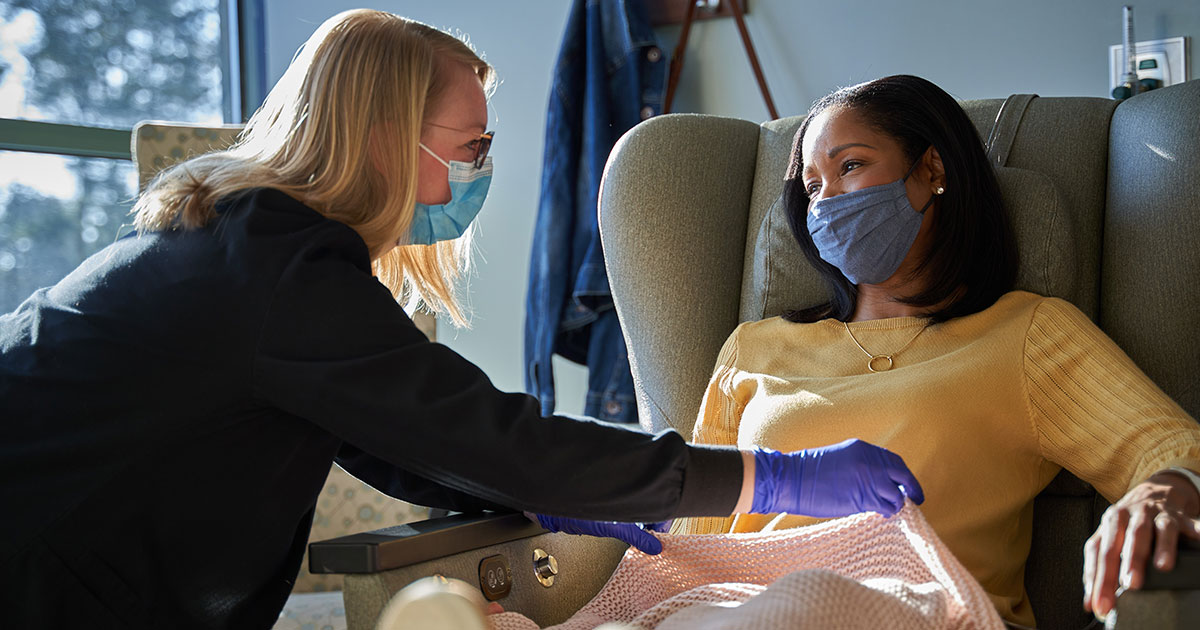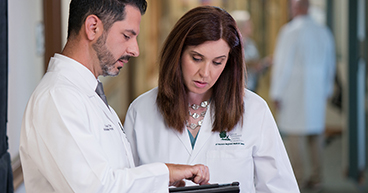
It’s often said that nurses are the heart of health care. The field of oncology nursing, in particular, is one of the most challenging and rewarding fields in nursing. For cancer patients, oncology nurses are there during the difficult and intimate moments in the journey, the ones at your bedside, educating, encouraging. They are also the ones behind the scenes, communicating with doctors and coordinating care.
Who are oncology nurses?
Nurses join the profession for a reason. It’s who they are. They are the healers, the helpers, the caregivers of the world. When nurses choose to work in an oncology setting, they understand there will be challenges, and they do it anyway. Some even make sacrifices for their patients.
What are the main duties of an oncology nurse?
Oncology nurses care for cancer patients, serving as their first line of communication, and helping to coordinate the many aspects of their care throughout cancer treatment. They may perform a number of duties, including:
- Reviewing the patient’s health history
- Assessing and monitoring the patient’s physical and emotional status
- Keeping track of laboratory, pathology and imaging studies
- Safely administering medications, fluids and cancer treatments, such as chemotherapy
- Collaborating with the patient’s doctors and other clinicians about the treatment plan
- Helping patients understand the disease and their treatment plan
- Helping translate complex medical terminology and answering questions
- Communicating with the doctors and other clinicians on the patient’s behalf
- Helping the patient plan for and manage symptoms throughout treatment
Where do oncology nurses work?
Oncology nurses practice in a variety of settings, including hospitals, outpatient care centers, clinics, private practices and long-term care facilities. The scope of oncology nursing spans from prevention and early detection to treatment (such as surgical oncology, radiation oncology and medical oncology), symptom management and palliative care.
What type of training does an oncology nurse need?
Oncology nurses have a cancer-specific knowledge base and clinical expertise in cancer care beyond what’s acquired in a basic nursing program. Board certification is voluntary and requires qualifications, knowledge and education in a specialty area. To become oncology certified, nurses typically must have a nursing degree, a registered nursing (RN) license, meet specific eligibility criteria and pass an exam. Advanced certification generally requires a master's degree or higher in nursing, hours of supervised clinical practice and, sometimes, additional training.
The Oncology Nursing Certification Corporation (ONCC) offers several certification options, such as oncology certified nurse (OCN) and advanced oncology certified nurse (AOCN). Certification is typically granted for four years, and is renewed by taking a recertification test or by earning continuing medical education credits.
Challenges of oncology nursing
Many nurses find caring for cancer patients rewarding. It’s also a physically, mentally and emotionally demanding job. Oncology nurses must keep track of numerous details throughout the day for each patient—and they likely have to tend to several patients each day. One mistake could adversely affect a patient’s health, so their attention to detail is critical.
Oncology nurses are also there to provide compassion for their patients, and to keep their patients calm in the midst of a difficult situation. They often form relationships with their patients and learn about the person’s life and family.
Everyone has bad days. Bad days for oncology nurses must be pushed aside to make room for their patients’ needs. Because of the stresses and challenges that come with caring for people with cancer, oncology nurses often experience physical and emotional burnout. It’s important for nurses to take care of themselves, too, which, in turn, helps them better care for their patients.
Learn how writing may help cancer patients express their emotions.


